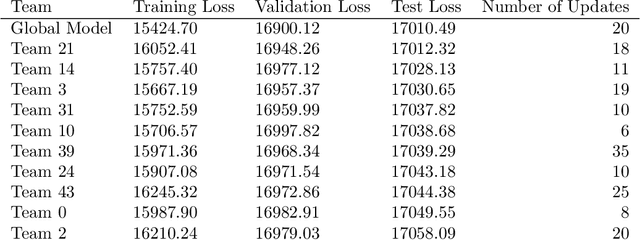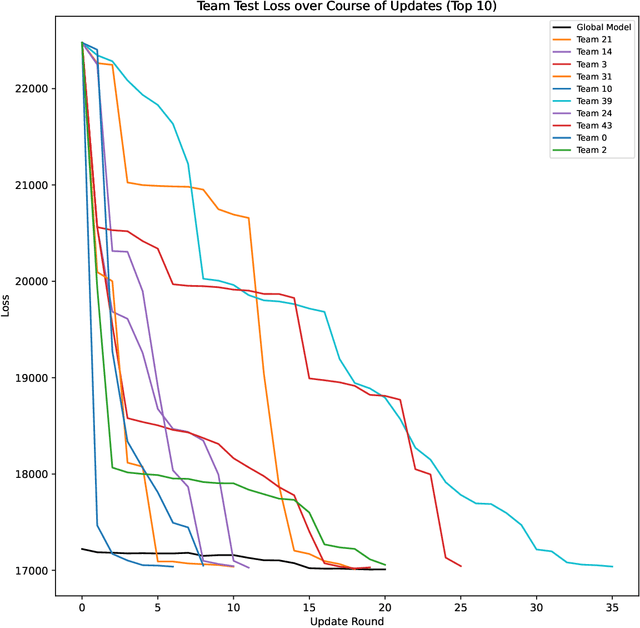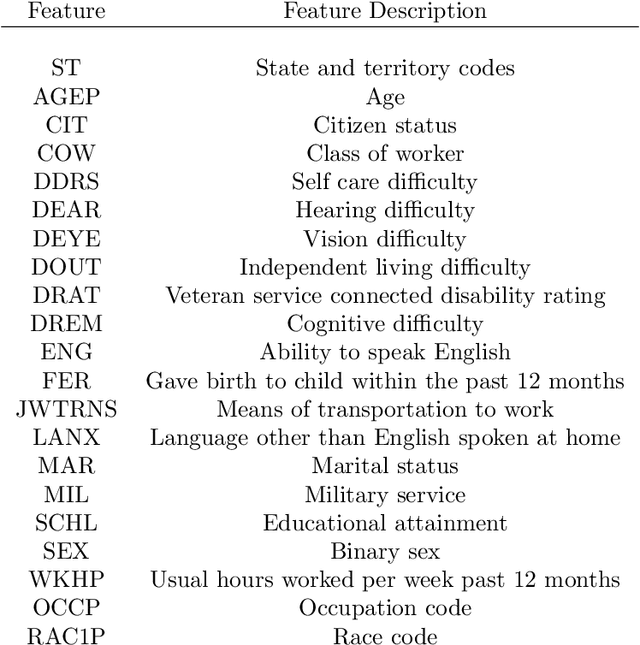Declan Harrison
Diversified Ensembling: An Experiment in Crowdsourced Machine Learning
Feb 16, 2024



Abstract:Crowdsourced machine learning on competition platforms such as Kaggle is a popular and often effective method for generating accurate models. Typically, teams vie for the most accurate model, as measured by overall error on a holdout set, and it is common towards the end of such competitions for teams at the top of the leaderboard to ensemble or average their models outside the platform mechanism to get the final, best global model. In arXiv:2201.10408, the authors developed an alternative crowdsourcing framework in the context of fair machine learning, in order to integrate community feedback into models when subgroup unfairness is present and identifiable. There, unlike in classical crowdsourced ML, participants deliberately specialize their efforts by working on subproblems, such as demographic subgroups in the service of fairness. Here, we take a broader perspective on this work: we note that within this framework, participants may both specialize in the service of fairness and simply to cater to their particular expertise (e.g., focusing on identifying bird species in an image classification task). Unlike traditional crowdsourcing, this allows for the diversification of participants' efforts and may provide a participation mechanism to a larger range of individuals (e.g. a machine learning novice who has insight into a specific fairness concern). We present the first medium-scale experimental evaluation of this framework, with 46 participating teams attempting to generate models to predict income from American Community Survey data. We provide an empirical analysis of teams' approaches, and discuss the novel system architecture we developed. From here, we give concrete guidance for how best to deploy such a framework.
Multicalibration as Boosting for Regression
Jan 31, 2023Abstract:We study the connection between multicalibration and boosting for squared error regression. First we prove a useful characterization of multicalibration in terms of a ``swap regret'' like condition on squared error. Using this characterization, we give an exceedingly simple algorithm that can be analyzed both as a boosting algorithm for regression and as a multicalibration algorithm for a class H that makes use only of a standard squared error regression oracle for H. We give a weak learning assumption on H that ensures convergence to Bayes optimality without the need to make any realizability assumptions -- giving us an agnostic boosting algorithm for regression. We then show that our weak learning assumption on H is both necessary and sufficient for multicalibration with respect to H to imply Bayes optimality. We also show that if H satisfies our weak learning condition relative to another class C then multicalibration with respect to H implies multicalibration with respect to C. Finally we investigate the empirical performance of our algorithm experimentally using an open source implementation that we make available. Our code repository can be found at https://github.com/Declancharrison/Level-Set-Boosting.
 Add to Chrome
Add to Chrome Add to Firefox
Add to Firefox Add to Edge
Add to Edge